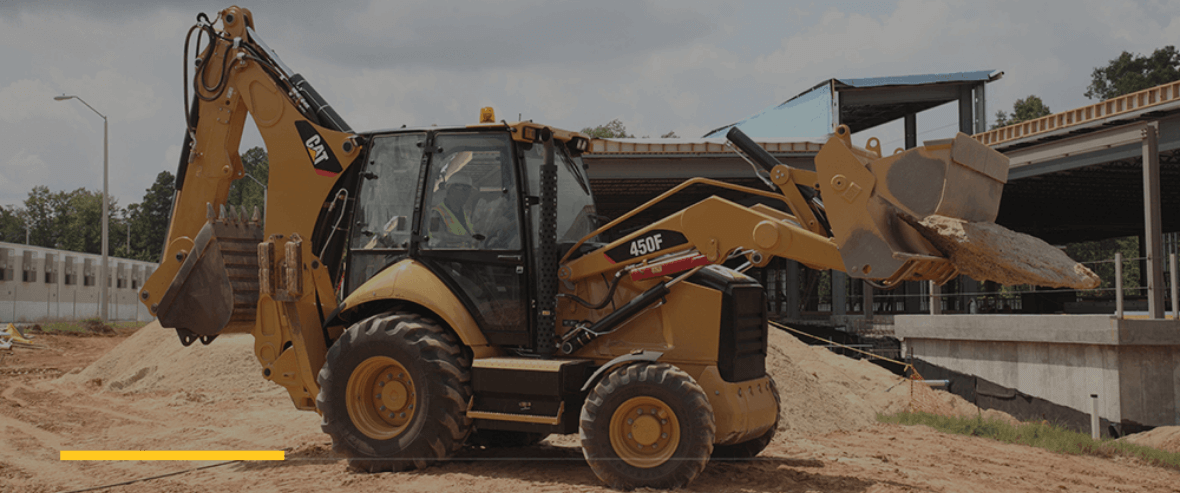
How to Scale up Your Business With Rental Equipment
Expanding your business means taking on bigger projects, new clients, and more complex challenges. The right tools can help you scale efficiently, but buying heavy equipment is expensive and often risky for growing companies. Rental equipment offers a flexible, lower cost path to growth by giving you access to machines when you need them — without the burden of ownership. Here’s how rental equipment can support business growth, boost your return on investment (ROI), open up opportunities, and keep your company competitive.
Scaling Approach
1. Find the Right Equipment for the Job
Using the wrong machine wastes time, increases risk, and raises costs. Rentals ensure you always have the right size and type of equipment for each project.
Scenarios:
- A compact track loader may be overworked on large earthmoving projects. Renting a wheel loader instead can help finish faster and reduce wear.
- Oversized equipment on small sites creates maneuverability problems and safety hazards.
- Specialty machines like pipelayers or cold planers are often impractical to buy but easy to rent for a specific job.
Research confirms that matching the right equipment improves productivity and ROI. Rentals let you test machines before buying, reducing investment risks.
2. Track New Opportunities
Rental equipment allows you to take on work you would otherwise decline, expanding your client base and revenue potential.
Competitive advantages:
- Stronger bids: Offering tailored solutions with the right machines makes your proposals stand out. Clients value efficiency and precision, which are easier to guarantee when you can rent the best equipment.
- Meet demand surges: Rentals allow you to quickly scale capacity during busy seasons or after regulatory changes. For instance, if new accessibility laws create sudden demand, renting lets you meet the spike without long-term investments.
- Access to high-tech machines: Features like telematics and AI provide competitive edges in efficiency and safety.
Being adaptable helps you stay ahead of competitors and position your business as a go-to provider.
3. Improve Your Company’s Cash Flow
Cash flow drives growth. Renting reduces financial strain by lowering overhead and freeing capital for reinvestment.
Key benefits:
- Lower fleet costs: Owning fewer machines reduces storage, insurance, and depreciation.
- Avoid big purchases: Instead of tying up capital in a $250,000 dozer, you can rent one when needed and invest the savings in marketing, labor, or expansion.
- No repair bills: Providers handle maintenance, saving costs on parts and labor.
- Predictable costs: Rentals make budgeting simpler. You pay a flat rate for the period you use the machine instead of long-term upkeep.
For example, a landscaping company may rent compact loaders during spring cleanup season instead of buying, keeping cash free to hire seasonal staff and bid on more projects.
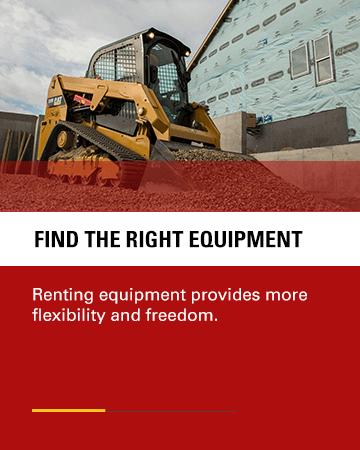
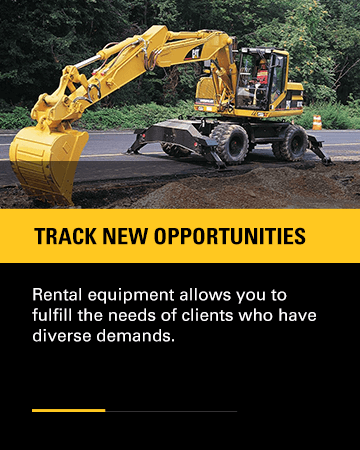

4. Utilize the Latest Technology
Buying new machines every time technology advances isn’t realistic. Rentals let you use state-of-the-art equipment affordably.
Examples of technology benefits:
- Payload measurement: Prevents overloading and underloading to improve efficiency.
- Ride control: Reduces operator fatigue by reducing bouncing and improving handling when transporting material.
- Telematics: Monitors fuel use, idle time and location, giving managers actionable data.
- AI and sensors: Improve safety by detecting obstacles and assisting operators.
Trying technology through rentals lets you evaluate features before investing. For instance, if you’re unsure about the ROI of telematics, you can rent a machine with the feature to see the benefits first-hand.
5. Focus on Building Instead of Maintenance
Owning machines means handling oil changes, inspections, and repairs. These tasks may require skilled labor and shop space, reducing time for your core business activities.
Rentals shift these responsibilities to the provider. You save money, reduce downtime, and ensure equipment meets safety and emissions regulations. Your crews can stay focused on delivering projects.
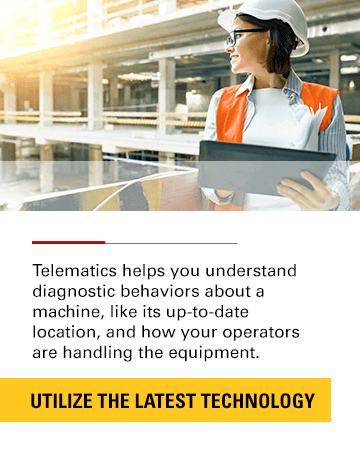
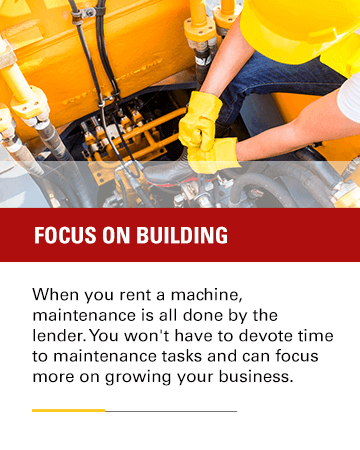
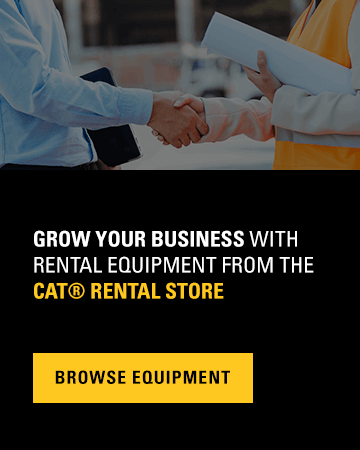
Boosting ROI With Rentals
ROI is about maximizing revenue while controlling costs. Rentals contribute by:
- Allowing you to bid on high-value projects without investing in rarely used machines.
- Reducing downtime since rental providers replace or repair equipment quickly.
- Helping avoid depreciation losses when selling old machines.
According to industry data, owning equipment that sits idle can dramatically lower profitability. Renting keeps utilization high and ROI strong.
FAQs About Scaling With Rental Equipment
How can rental equipment help my small business grow?
Rentals expand your capabilities without major investment. For example, a small contractor can rent a telehandler for a large warehouse project, then return it after completion.
Is renting cheaper than buying equipment?
Renting avoids upfront costs like down payments and financing. While daily rates may be higher, the overall savings on maintenance and capital expense often make rentals more cost-effective.
What if I want to buy later?
Renting lets you try before you buy. You can test a specific excavator or loader model on real jobsites before committing to a purchase.
How do rentals affect competitive bidding?
Having access to any machine you need means you can craft stronger, more specific bids. Clients are more likely to choose a company with the right tools for the job.
Grow Your Business With The Cat® Rental Store
The Cat® Rental Store provides an extensive selection of machines and attachments to help businesses scale smarter. Browse rental options, find your nearest location or request a quick quote.
Find The Cat Rental Store Near You